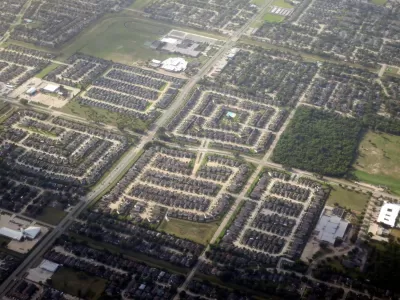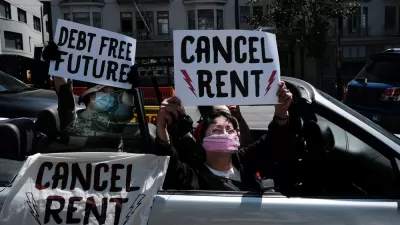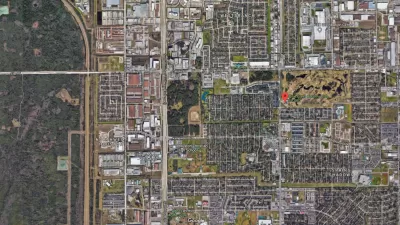The Houston region continues to grow, and local regional governance is struggling to meet residents’ needs.

A new report from Rice University’s Kinder Institute for Urban Research looks at growth in the Houston region and the struggles cities, counties, municipal utility districts (MUDs), and special districts face in providing municipal services to developing areas. “How do we ensure that all areas of those jurisdictions get the services they need and that those jurisdictions have the revenues and powers they need to adequately serve those areas?” asks Kyle Sheldon, one of the report’s authors, in an interview on Houston Matters.
Shelton says MUDs, prevalent in Harris County, are special districts in the state of Texas with property tax collection and other powers that help them build public infrastructure in areas that a city cannot or does not want to reach. However, the system has become complicated and confusing, says Shelton. “There are a lot of growing populations in those areas, and they have expectations for services and may not always understand the county is not the water provider, [that] the county does not do all the same things that the city does.”
One reform proposal is regional revenue sharing, where all jurisdictions in an area pay into a shared pot that is then redistributed. “That would help address some of the disparities we have in some jurisdictions: not being able to adequately maintain water treatment facilities or adequately maintain streets. It helps all of those jurisdictions without overturning existing systems or asking people to drastically change the government structure,” says Shelton. Other options at the county level include giving fast-growing counties sales tax and limited ordinance-making powers.
Shelton stresses that thinking at the regional scale and about regional vitality is important. He notes that Houston chose to grow and to be responsible for providing services to a massive area. He says that MUDs are providing many of those services effectively, and parts of the system are working well. However, the various entities need to be strengthened to prepare for the long-term regional challenges.
FULL STORY: Report: Houston Growth Is Unsustainable Without Government Reforms

Alabama: Trump Terminates Settlements for Black Communities Harmed By Raw Sewage
Trump deemed the landmark civil rights agreement “illegal DEI and environmental justice policy.”

Planetizen Federal Action Tracker
A weekly monitor of how Trump’s orders and actions are impacting planners and planning in America.

Why Should We Subsidize Public Transportation?
Many public transit agencies face financial stress due to rising costs, declining fare revenue, and declining subsidies. Transit advocates must provide a strong business case for increasing public transit funding.

Understanding Road Diets
An explainer from Momentum highlights the advantages of reducing vehicle lanes in favor of more bike, transit, and pedestrian infrastructure.

New California Law Regulates Warehouse Pollution
A new law tightens building and emissions regulations for large distribution warehouses to mitigate air pollution and traffic in surrounding communities.

Phoenix Announces Opening Date for Light Rail Extension
The South Central extension will connect South Phoenix to downtown and other major hubs starting on June 7.
Urban Design for Planners 1: Software Tools
This six-course series explores essential urban design concepts using open source software and equips planners with the tools they need to participate fully in the urban design process.
Planning for Universal Design
Learn the tools for implementing Universal Design in planning regulations.
Caltrans
Smith Gee Studio
Institute for Housing and Urban Development Studies (IHS)
City of Grandview
Harvard GSD Executive Education
Toledo-Lucas County Plan Commissions
Salt Lake City
NYU Wagner Graduate School of Public Service





























